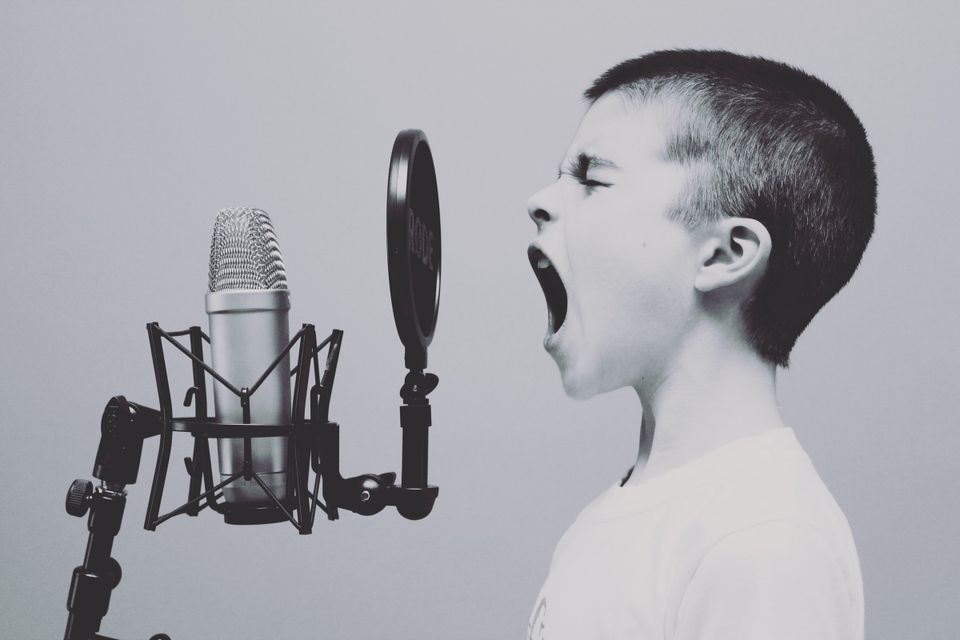Why No One Can Hear You When You Talk

“How the hell did she not hear me?”
I was making small talk with a customer at my job. I said something clearly, audibly, and without mumbling, to her face. She completely ignored it.
We were talking about health and fitness, and for much of the conversation, it seemed like I wasn’t even there. She would ask a question, I would give an answer, and halfway through my response, she’d be speaking again. At one point she asked, “Do you work out?”
I said, “Yes. I do actually.” And she said, “You really should.” She wasn’t agreeing with me. She said it as if I’ve never worked out in my life.
I figured she was just a poor listener, but I started recognizing that moments like this were common in my life. Even when I spoke clearly, I still wasn’t being heard. Other people would speak over me and my words weren’t getting through to anyone. Since then, I’ve figured out why.
What Makes a Speaker?
Picture a powerful speaker like Martin Luther King or JFK. Why did people listen to them? A confident voice was only a single aspect of what made them so compelling.
This might seem obvious, but those who command attention speak with the intention of being heard. You can sense it in their voice. The underlying message is, “you will hear what I have to say.” It’s not, “please listen to what I have to say.”
They don’t hesitate. They’re committed to their words. Their mission is to get through to you, and they can’t do that by hoping you’ll hear them out. They make it happen.
Why No One Can Hear You
When I spoke to other people, my demeanor, and my words, had an air of holding back. People could sense the lack of commitment in my voice.
If I was trying to be social, I knew I had to speak. But I also knew I was afraid to be heard and afraid to be seen. Each time I spoke it sounded like I was apologizing for my existence.
If I was trying to get someone to hear me, I felt like I was forcing them to do something they didn’t want to do. I was hypersensitive to the needs of others and did not value my own. This is not a productive model for social interaction.
Not being heard left me feeling bitter and resentful. And it’s true, we all appreciate good listeners. I try to be that myself. But when you speak with the vibe of “you don’t have to listen to me if you don’t want to,” it makes it difficult for the other person to care.
It takes the significance and self-expression out of the things you say. And this sends the message that it’s ok for people to filter out your words.
If you don’t believe in what you say, no one else is going to either.
But it goes deeper than that. Before you speak you must ask yourself, “Who am I speaking for?” Am I speaking to express what I think? Or am I speaking to please the other person?
People started hearing me when I stopped caring about pleasing them. I’m not saying you need to become a selfish prick, but you have to respect yourself in addition to others to get heard.
Like many things, it was a crisis of self-esteem and relating to people in a maladaptive way. I had to allow myself to get someone’s attention. I had to learn there was nothing wrong with “invading” someone else’s perspective. You have a right to be heard.
The Solution to Not Being Heard
Start with the basics. If you mumble, practice speaking clearly and audibly. And if you want to be a powerful public speaker, there are several ways to strengthen your voice and vocal delivery.
Take some advice from combat sports. In boxing, you need to have the mindset of punching through your opponent to land an effective strike. Those are the hardest hits. Think about speaking through a person rather than to them, and they’re bound to hear you.
Here are the general guidelines:
- Respect your right to be heard, and intend to be.
Understand your voice and perspective have as much value as anyone else’s. Let people think what they think. Being seen won’t destroy you. - Commit to what you say, and don’t apologize for it.
When you commit to what you say, it creates a significance that can only come from you. All of a sudden, you pop up on people’s radars. If you’re willing to express yourself strongly, then people will see you as someone worth listening to. - Speak for yourself.
Speak because you have something to say. Not out of obligation or a desire to please.
You can follow these principles and some people still won’t listen to you. Fine.
Here’s the truth: The only people you want to be speaking with are the ones who resonate with your authentic personality. Those are the only connections that matter.
The only way to find them is by saying the things you want to say. Being polarizing weeds out the ones who aren’t good for you and attracts the ones who are.
The key to being heard is respecting your own voice, and knowing you have a right to express. When you speak with purpose, people take notice. It takes a display of unapologetic selfhood to get their attention.



